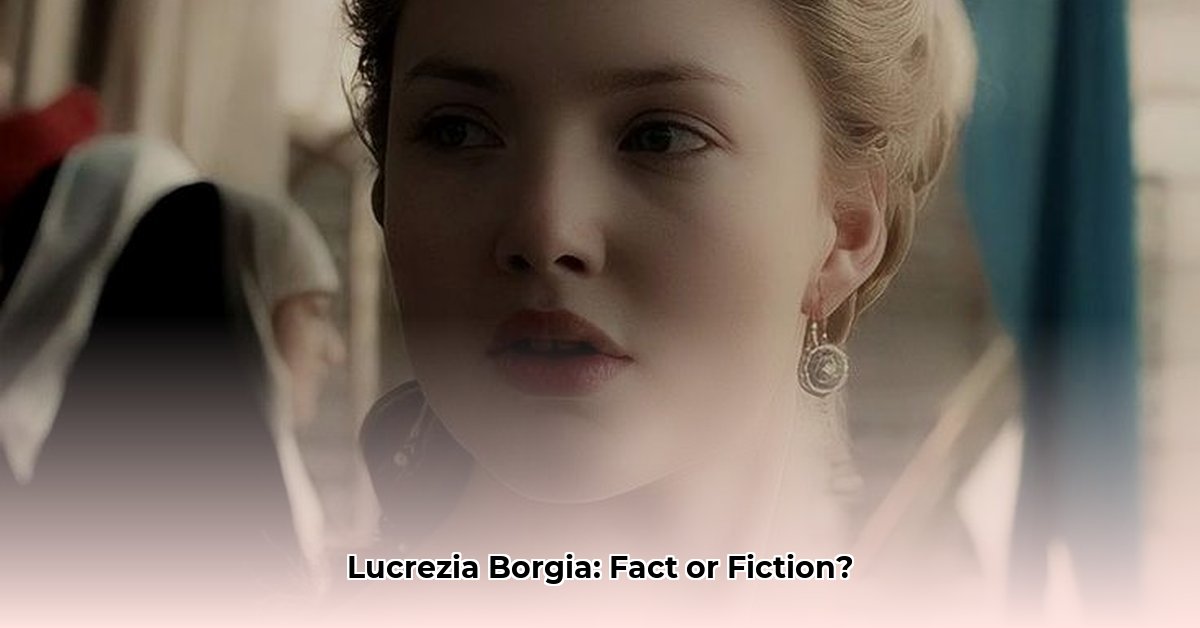
A Life Shaped by Power and Politics
Lucrezia Borgia. The name alone evokes whispers of poison, intrigue, and the scandalous excesses of Renaissance Italy. Yet, to reduce her life to such simplistic terms is to fundamentally misunderstand a woman caught in the tumultuous currents of family ambition and ruthless power politics. Born into the infamous Borgia family, Lucrezia’s life, from her earliest years, was inextricably intertwined with the machinations of her father, Pope Alexander VI, who viewed her less as a daughter and more as a strategic asset in his relentless pursuit of power. This essay will explore Lucrezia’s life, navigating the treacherous path between historical fact and enduring myth, to reveal a woman of surprising resilience and unexpected agency.
A Whirlwind of Strategic Marriages
Lucrezia's early life was defined by a series of strategically arranged marriages, each designed to cement her family's position within the complex political landscape of Italy. Her first union, to Giovanni Sforza, a powerful lord, proved short-lived, ending in a controversial annulment. Was it a reflection of Sforza's waning political influence, or a calculated move by the Pope to secure a more advantageous alliance for his daughter? The question remains hotly debated amongst historians, highlighting the enduring ambiguities surrounding Lucrezia's life. Her subsequent marriage to Alfonso of Aragon, the Duke of Bisceglie, ended even more dramatically with Alfonso's sudden and mysterious death. Did Lucrezia play a role in his demise? The whispers of the time linger, painting a picture of intrigue and suspicion. How much truth lies in these allegations amidst the swirl of political rivalries and familial power struggles? This remains one of history's most enduring puzzles, a fact underscored by the continued debate over her alleged involvement.
Whispers and Allegations: Separating Fact From Fiction
Throughout her life, Lucrezia was plagued by whispers and accusations. Allegations of incest, poisonings, and other scandalous acts have been woven into the fabric of her legend. But how much of this is grounded in historical reality, and how much is the product of the bitter political battles fought by the Borgias’ rivals? It is crucial to approach such accounts with a critical eye, recognizing the prevalence of biased narratives designed to discredit the Borgias and undermine their political power. Many of the stories perpetuated about Lucrezia originate in the writings of their enemies, and without careful consideration of provenance and context, it becomes almost impossible to form a true picture of what really occurred. Did Lucrezia actively participate in these alleged acts, or was she merely a victim of circumstance, a pawn swept up in the power plays of a ruthless family?
Finding Peace in Ferrara
A pivotal turning point in Lucrezia’s life arrived with her marriage to Alfonso d'Este, Duke of Ferrara. Relocating to Ferrara offered a degree of respite from the poisonous political atmosphere of Rome. Accounts from this period paint a picture of a woman who cultivated a reputation for piety and generosity, seemingly a stark contrast to the scandalous reputation that had preceded her in Rome. Did Lucrezia undergo a genuine transformation in Ferrara? Or did she consciously cultivate a new persona, adapting to the political and cultural landscape of her new court? The answer, likely, lies somewhere in a complex interplay between genuine change and calculated strategy, demonstrating the multifaceted nature of her being.
Lucrezia's Enduring Legacy: Myth and Reality Entwined
Lucrezia Borgia remains a profoundly enigmatic figure, a captivating blend of myth and reality. Her story continues to fascinate, inspiring countless artistic and literary interpretations. While popular culture tends to focus on the more sensational aspects of her life, a more nuanced examination reveals a woman who, despite the constraints imposed upon her, demonstrated surprising resilience and a degree of agency within the turbulent backdrop of Renaissance Italy. Unraveling the truth behind the myths surrounding Lucrezia is an ongoing task, a testament to the persistent complexities of historical interpretation.
Key Takeaways:
- Lucrezia Borgia's life was a complex interplay of strategic alliances, political maneuvering, and personal choices within a highly volatile political environment.
- Many accusations levelled against her stemmed from the biased narratives of political rivals, adding layers of complexity to the task of separating fact from fiction.
- Her marriage to Alfonso d'Este in Ferrara marked a significant turning point, allowing for a period of relative stability and autonomy, demonstrating the capacity for change and adaptation.
- Lucrezia remains an endlessly fascinating figure representing the enduring power of myth and the ever-evolving understanding of historical events.